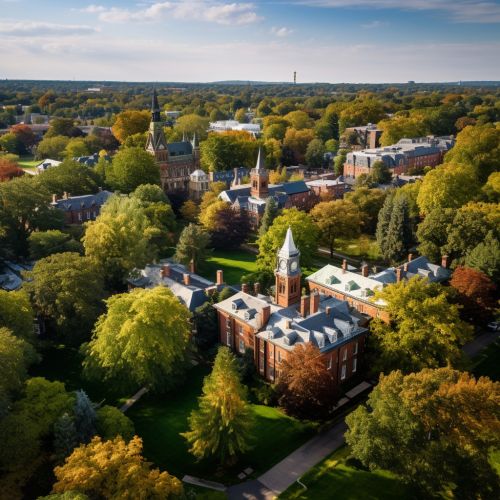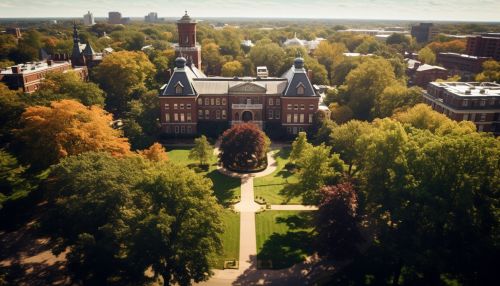Ivy League
History
The Ivy League is a collegiate athletic conference comprising eight private universities in the Northeastern United States. The term "Ivy League" is typically used beyond the sports context to refer to the eight schools as a group of elite colleges with connotations of academic excellence, selectivity in admissions, and social elitism. Its members are Brown, Columbia, Cornell, Dartmouth, Harvard, Pennsylvania, Princeton, and Yale.


The term "Ivy League" came into use in 1933, when Stanley Woodward of the New York Herald Tribune used it to refer to the football league comprising these schools, which had been competing against each other since the late 19th century. However, the Ivy League did not formally exist until 1954, when an agreement was made to establish it as an athletic conference.
Academics
The Ivy League schools are renowned for their rigorous academic programs and their commitment to undergraduate education. Each school has its own unique curriculum and academic culture, but all share a commitment to maintaining high academic standards and fostering intellectual growth.
The Ivy League schools offer a wide range of majors, from the humanities to the sciences, and many have top-ranked programs in fields such as economics, political science, and computer science. In addition to their undergraduate programs, the Ivy League schools also have highly respected graduate and professional schools, including law schools, medical schools, and business schools.
Admissions
Admissions to the Ivy League schools are highly competitive. Each school has its own admissions process, but all place a high emphasis on academic achievement, extracurricular involvement, and personal qualities. Many applicants to Ivy League schools have perfect or near-perfect grades and test scores, but only a small fraction of these applicants are admitted.
The Ivy League schools use a holistic admissions process, which means that they consider all aspects of an applicant's profile, not just their academic achievements. This includes their extracurricular activities, leadership roles, community service, personal essays, and letters of recommendation.
Campus Life
Life on an Ivy League campus can be both intellectually stimulating and socially vibrant. Students have access to a wide range of extracurricular activities, from clubs and organizations to sports and performing arts. Many students also participate in research, internships, study abroad programs, and other opportunities that enhance their educational experience.
The Ivy League schools are known for their beautiful and historic campuses, which feature Gothic, Georgian, and modern architecture. Many campuses have extensive libraries, art museums, and other cultural institutions that enrich the academic and cultural life of the community.
Impact and Influence
The Ivy League schools have had a significant impact on education, research, and society at large. Their alumni include numerous Nobel laureates, Rhodes Scholars, and leaders in business, government, and the arts. The Ivy League schools also have substantial financial resources, with endowments that rank among the largest in the world.
Despite their influence, the Ivy League schools have also been criticized for their exclusivity and their role in perpetuating social inequality. These criticisms have led to ongoing debates about admissions policies, financial aid, and the role of elite institutions in society.
